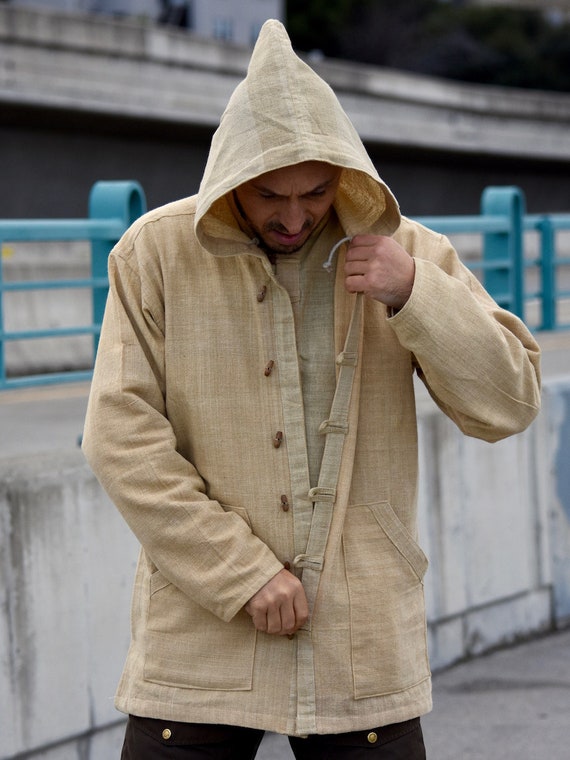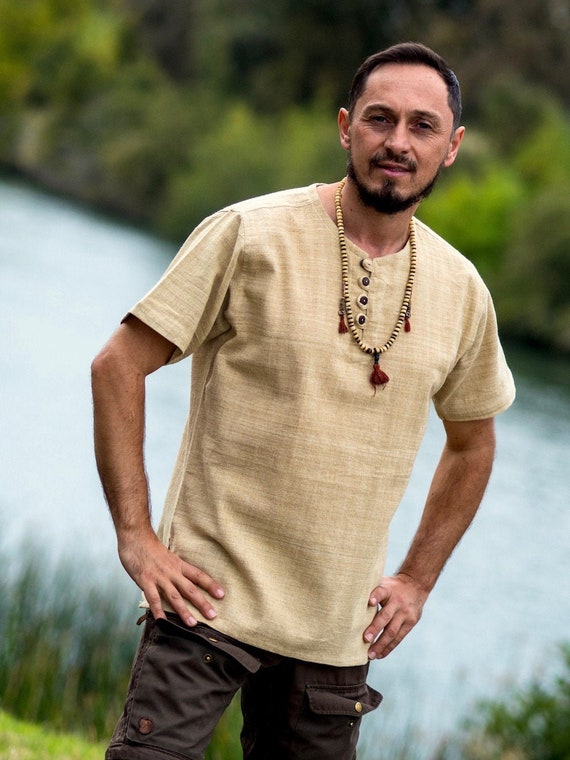Good Facts For Selecting Hemp Clothes
Wiki Article
What Are The Environmental Advantages Hemp Clothing With A Low Impact?
Clothing made of low impact fiber hemp offers many environmental advantages when compared with other materials for clothing. This includes clothing that is made using synthetic fibers or traditional cotton. Here are some of the important environmental benefits of hemp clothing: Sustainable farmingThe hemp crop is sustainable. Hemp is a sustainable crop. It is very fast growing and requires less water and pesticides. Hemp thrives in all climates and can adapt to different types of soils, thus reducing the requirement for chemical fertilizers.
Hemp uses less water than cotton. Cotton is well-known for its high water usage. This makes hemp an eco-friendly choice for clothes.
Hemp can grow without pesticides and herbicides. In a lot of cases this helps reduce the impact on the environment of chemical farming.
Hemp plantation can enhance soil health by preventing erosion and compaction. The soil is also left in better shape to grow future crops.
Hemp is biodegradable. It degrades naturally with time and reduces the amount of textile waste. Contrastingly, synthetic fibers such as polyester can decompose over hundreds of year.
Lower Carbon Footprint Hemp fibers are created with a lower carbon footprint that synthetic materials. Hemp is also a carbon sink, as it can absorb CO2 from the atmosphere as it is expanding.
Hemp clothes are known for its durability and lasts for a long time. Hemp clothing of high quality can last many years. This eliminates the necessity to replace it often and also waste.
Hemp plants exhibit the natural ability to resist many pests. Chemical pest control is not necessary.
Hemp is a versatile material, since it can be used in a myriad of textile applications including bags, clothing and other accessories. It's a green and trendy textile.
Regenerative agriculture- Some sustainable farming techniques incorporate hemp into systems of regenerative agriculture that aim to restore and improving ecosystems while producing plants. This can have a positive impact on the environment.
The dyeing process, transport as well as consumer behavior all contribute to the sustainability of the entire process. As with any industry, there can be variations in production practices and standards. It's beneficial to look for certified organic or sustainable hemp clothing alternatives to get the best environmental benefits. Have a look at the best hemp clothes for blog recommendations including american made hemp clothing, jeans hemp, hemp tees, 100 hemp t shirt, jeans hemp, dash hemp clothing, hemp sweatshirt, patagonia iron forge pants, hemp clothing near me, hemp cotton fabric and more.

What's The Secret To Hemp's Moisture-Wicking, Thermoregulating And Breathable Properties?
Hemp fibers possess unique chemical and structural characteristics that allow them to be air-tight. They are also moisture-wicking. These properties result from the combination of the following elements- Microscopic Structure- Hemp fibers are hollow, porous structure which allows air to flow through the fibers. Natural porosity is what makes hemp fabrics very air-tight. When they are knitted, or weaved together, this pattern allows for air flow. It improves air circulation by preventing heat and moisture from being trapped on the skin.
Hemp fibers have a high affinity to water and are able to absorb moisture. When you wear hemp clothes they can take sweat and moisture off your skin, eliminating the feeling of being wet. Additionally, hemp fibers can be effective in wicking away moisture, dispersing it across a wider area of fabric where it can be evaporated faster. This moisture-wicking quality keeps your body dry and comfortable while exercising or during the summer heat.
Hemp fibers are a natural source of properties for thermal regulation. They can trap the body's heat when it's cold, thereby providing warmth. When it is hot, they allow moisture and heat to be released. This helps to cool the body. The inherent thermoregulation ability makes hemp clothing suitable for a variety of temperatures and types of activities.
Hemp fibers have antimicrobial properties and are able to stop the development of bacteria that produce stinks. This contributes to the freshness and odor resistance in hemp clothing.
Durable and Long-Lasting- Hemp fibers are strong and durable, meaning hemp clothing can endure frequent washing and wear without losing its breathability or moisture-wicking capabilities. This durability allows hemp garments to last for longer and decreases the requirement for replacement and, thus, the impact on the environment.
UV Protection Hemp fibers are an organic UV protector, protecting the skin from damaging UV rays. This UV blocker is a part of hemp clothing's flexibility, making it ideal for outdoor pursuits.
It is crucial to be aware because these properties are inherent and not dependent on chemical treatments. Hemp is a naturally-occurring fibre with many characteristics that make it suitable and sustainable for clothes. This is especially true for outdoor wear, activewear, and warm-weather apparel. These attributes are preserved when hemp fibers become textiles. This makes them an extremely sought-after fabric for clothing that is eco-friendly. Check out the most popular hemp clothes for website tips including clothes made from hemp, hemp sweatpants, jungmaven t shirt, hemp tee shirts, hemp t shirt mens, hemp jacket, hemp tees, hemp t shirt mens, hemp t shirts wholesale, hemp sweatshirt and more.

Bamboo Clothing Is Sustainable And Incredibly Comfortable.
Bamboo clothing provides several benefits in terms of comfort for the wearer and their environment.
Softness- Bamboo is renowned for its incredibly soft. It's silky and soft to the touch, which makes it comfortable on the skin. Bamboo clothing is luxuriously soft and is popular for activewear, loungewear, intimate apparel, and different kinds of clothes.
Breathability - Bamboo fibers can be naturally moisture-wicking and breathable. Air circulates through the tiny gaps which keep you cool in the hottest temperatures. The properties that wick moisture away from the fabric assist in removing sweat from your skin. This helps reduce the feeling that the clothes are damp.
Bamboo clothing is a great thermoregulating qualities. It will keep you warm in colder weather by keeping warmth close to your skin. In hot conditions, it assists you to stay cool by allowing heat and moisture to evaporate. Bamboo can adapt to a range of temperatures, it's suitable for any season.
Hypoallergenic bamboo fabric is hypoallergenic and gentle for sensitive skin. It's less likely to trigger an allergic reaction or cause irritation. This makes it a great choice for those with allergies or skin sensitivities.
Bamboo fibers are naturally antimicrobial and can inhibit the growth of bacteria that produce smell. Bamboo clothing keeps its freshness even when you are physically active.
Environment-
Sustainability- bamboo is a source of renewable energy that is environmentally sustainable. Bamboo is the fastest growing species of plant on the planet. It needs minimal water to grow and requires no pesticides. Bamboo can be harvested without killing the plant, as it regenerates from its root system.
Bamboo is a natural water-efficient plant. It is able to thrive without much irrigation and can often be planted by rainwater only. This helps reduce the environmental impact that comes from agricultural water use.
Biodegradability- Bamboo clothes are biodegradable meaning it naturally decomposes in time after being disposed of. This feature reduces waste that is not biodegradable textiles that end up in landfills.
Carbon Sequestration- Bamboo plants can capture carbon dioxide (CO2) from the atmosphere during their fast expansion. Bamboo is a great choice as a carbon sink to assist in the fight against climate change.
Chemical Reduction- The manufacturing of bamboo fabric typically involves fewer chemical treatments and processing procedures compared to some other textiles, reducing the environmental impact associated with textile production.
Closed-Loop Systems Bamboo fabric production utilizes closed-loop processes which recycle chemicals and water. This minimizes pollution and waste.
It is important to remember that the environmental impact of bamboo clothes can differ depending on the specific manufacturing process employed and whether the bamboo used in the process is sourced from sustainable and responsibly managed bamboo forests. Bamboo clothing produced according to sustainable practices will bring the greatest environmental benefit. Follow the best such a good point on bamboo clothes for website info including bamboo workout clothes, bamboo baby pajamas, bamboo jeans brand, ladies bamboo pants, bamboo dress shirt, bamboo shirt, bamboo fiber t shirt, bamboo hoodie women's, rayon from bamboo fabric, bamboo shorts womens and more.
